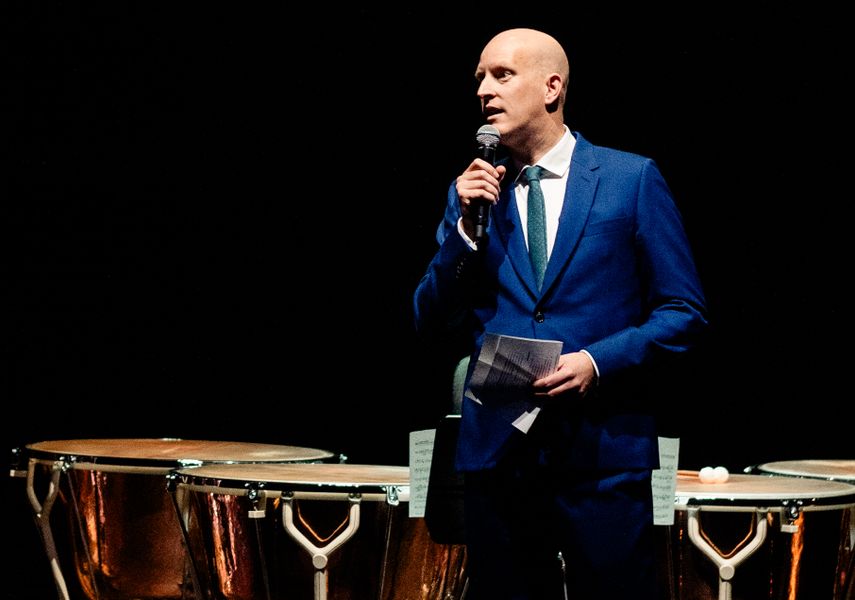Season 2024-2025: About Life

Preface by Joost Maegerman
After-life
Beethoven is very much alive and kicking. And so are Mahler and Rachmaninoff. Not in the biological sense, obviously, but thanks to their musical legacy, we can still engage with their emotions and get a better idea as to their personalities. Their compositions have outlived their creators, telling us something about their lives.
La vie est un long fleuve tranquille
The origin of life is a mystery, and we still don't know what, if anything, happens after death. And so we coast along on the maelstrom of life, from beginning to end. Last season, we focused on what we do with our talents in our lifetime. This season, we zoom in on the beginning and the end of our earthly existence.
The trumpet and the dies irae
Many composers were inspired by the mystery of death. This season, the dies irae motif resonates in several compositions, including in some requiems. I am particularly looking forward to hearing Mozart's Requiem (completed by his pupil Süssmayer after his death) by the Antwerp Symphony Orchestra and Collegium Vocale Gent under the baton of Philippe Herreweghe, with the trombone ("Tuba Mirum") announcing the final judgement. The trumpet also has a starring role in this season's programming, with leading soloists such as our own Alain De Rudder, Tine Thing Helseth, and Selina Ott. The impending end can also be an opportunity for a last surge before death, as with the manic energy of the "danses macabres".
Life after death
Humanity has long wondered where we originated and what happens in the afterlife. The main belief systems have all tried to answer that question, using concepts such as reincarnation or resurrection to explain how a person can live on after death. Whether opening the door to the afterlife, reconnecting with a divine source, or entering a new life cycle after reincarnation, the idea of life after death emphasises that something new and meaningful can occur after our life in the physical world.
Living on
For some composers, we can interpolate the meanders of their lives between their first and last works. Mozart and Beethoven, whose first and last symphonies we will be performing this season, are eminent examples of this.
Others left unfinished works, sometimes as they stared death in the face, which were subsequently completed or arranged by the next generation, as in the case of Süssmayr with Mozart's Requiem.
Future generations thus bear a great responsibility as they strive to keep this musical legacy alive. For composers such as Rachmaninoff or Mahler, foundations were established to preserve their legacy for posterity. But we must also consider how we deal with the creative legacy of local heroes who left us far too soon, such as Luc Brewaeys or Wim Henderickx. During a symposium, we will take a closer look at the "legacy" of composers.
What came before the beginning? And what comes after the end?
This is all based on a Western view of the course of life, in which every beginning inevitably leads to an end. In other cultures, time is viewed as a cyclic rather than linear process in which every end is a new beginning. During the seasonal happening, we will discuss the work of circular or minimalist composers in a beautiful parallel with the latest insights into the origins of the universe.
What to hand down to the next generation?
We hope this season's magnificent programme will also move and inspire you. But it is also an opportunity to reflect on the magnificent musical legacy that has been handed down to us and how to let it live on and share it with generations to come. On a final note, I would also like to thank all the donors who have included us in their will as part of our Vivace programme. Their legacy donations define what we can offer future generations of concert-goers. Living on by passing it on.




